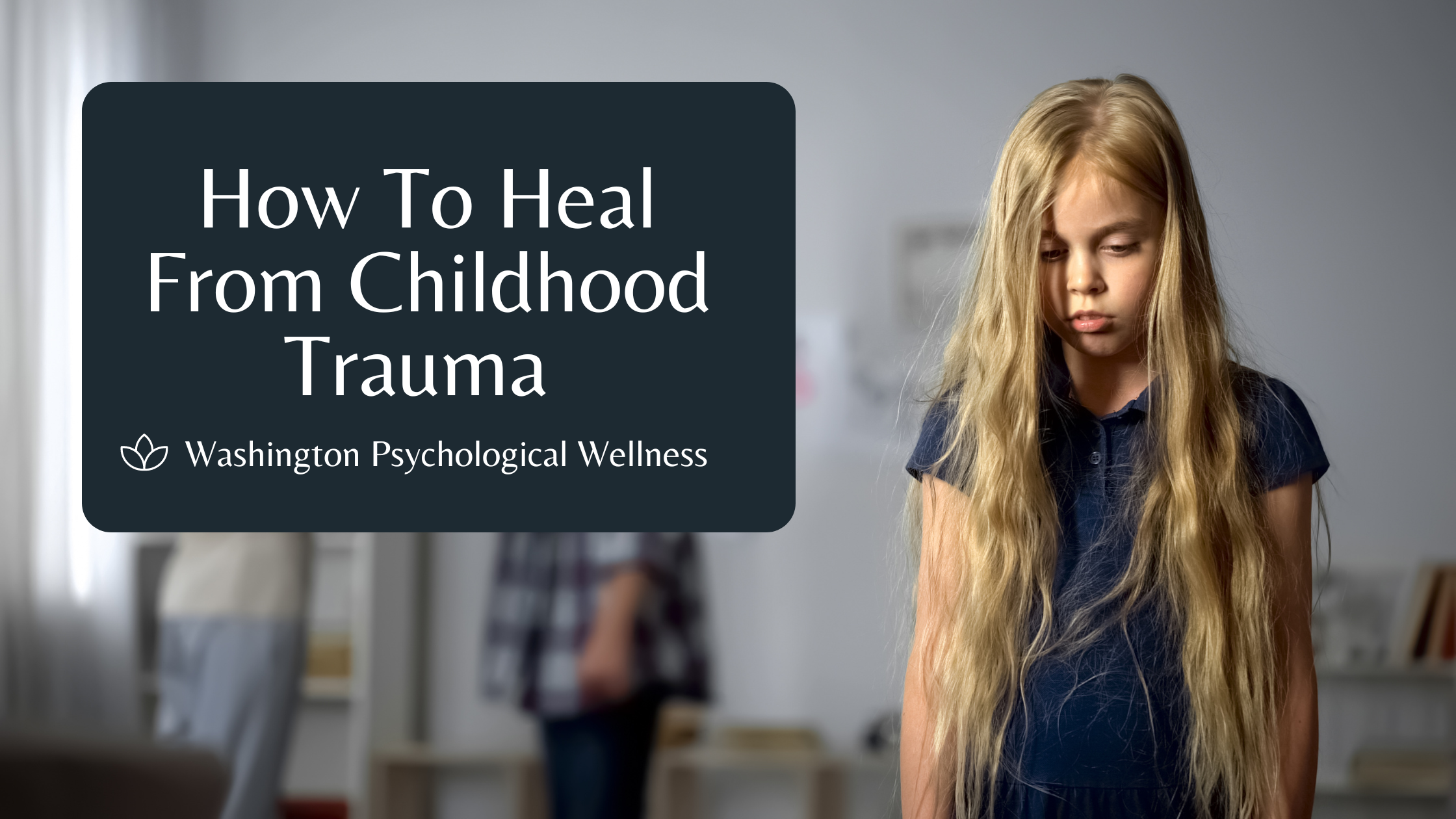
How to Heal from Childhood Trauma
Childhood trauma can have a lasting impact on our lives, affecting our emotional, mental, and physical well-being. It is not healthy or adaptive for someone to live with this pain for their entire life. However, healing from childhood trauma is possible with the right tools and support. If you are struggling with past childhood trauma, it’s crucial to encourage yourself to heal and move forward. To start and continue the healing process, here are some tips to help you reduce negative emotions and live a more open and fulfilling life.
Recognize The Trauma
Many individuals who have experienced childhood trauma may try to downplay or ignore what happened to them. However, to heal from trauma, it is essential to acknowledge and accept that it happened. Start by examining your experiences and asking yourself if you were neglected, abused, or exposed to life-threatening events during childhood. It’s important to recognize and validate the feelings that come with the trauma, such as anger, sadness, and fear. Remember that you’re not alone, and it’s okay to seek help and support to heal from the trauma. Bringing your trauma into the light is the first step towards healing and moving forward.
Retain Power
Retain your power and take control of your life. Childhood trauma can leave you feeling overwhelmed and make it difficult to make choices based on your needs and desires. However, it’s important to remember that you are in control of your life and your decisions. Don’t let past pain dictate your choices. You can move forward and heal from your childhood trauma by taking back control and making decisions based on what you want and need. Don’t continue to let the trauma control your life. Instead, take charge and empower yourself to create a fulfilling future.
Seek Help
Seeking help and support is crucial in the healing process of childhood trauma. However, it is essential to recognize that healing cannot be done alone. Seeking professional help and support is one of the best ways to start healing. Therapies helpful in dealing with childhood trauma include individual, couples, child/adolescent, and family therapy. Your therapist can help you deal with the emotional problems caused by the trauma and support you. Additionally, joining a support group for survivors of childhood trauma can further help your healing process by connecting you with others who have experienced similar struggles. Finally, remember that seeking help is a sign of strength, not weakness.
Time to Accept and Let Go
Letting go of past trauma is a crucial step in the healing process. It involves acknowledging that the trauma happened and accepting that it was not your fault. This can be a difficult step, but it is necessary for healing to begin. Once you accept the trauma, you can start to let go of it. Letting go means that your trauma no longer defines you and that you are choosing to focus on the present and future rather than the past. It is important to note that letting go does not mean forgetting or ignoring the trauma but instead not allowing it to control your life anymore. This can involve forgiveness, self-compassion, and reframing negative thoughts. Letting go may take time, but with patience and persistence, it is possible to find peace and happiness in your life.
Good Habits
Developing good habits can be an essential step in your healing process. While sticking to old bad habits may seem more comfortable and familiar, they can hold you back from reaching your full potential. It’s important to recognize that developing healthy habits can be difficult initially, but it will pay off in the long run. Good habits can help you feel good about yourself and boost your self-esteem. Making mistakes is a natural part of life, and everyone goes through it. The important thing is to learn from your mistakes and move forward with new habits that will help you achieve your goals. Replacing bad habits with good ones is a crucial step in the healing process and can help you on your journey toward a healthier and more fulfilling life.
Patience & Self-Love
Healing from childhood trauma is a process that requires patience and self-care. It’s important to remember that it won’t happen overnight, and it may take time for you to see progress. To achieve this goal, taking care of yourself by eating healthy, exercising, and getting enough sleep is essential. You should also surround yourself with positive and supportive people who will encourage you along the way.
Self-love and respect are crucial when it comes to healing from childhood trauma. You deserve to be loved, and it’s important to start by loving yourself. If you struggle to love yourself, it can affect your daily life and lead to more problems. Therefore, treating yourself with kindness and compassion is essential.
It’s natural to want to see progress quickly, but remember that healing is a journey, not a destination. Be patient with yourself and trust the process. By caring for yourself and practicing self-love, you can overcome any negative feelings or thoughts holding you back. Remember, the time to heal from childhood trauma is now, and with patience and self-care, you can create a happier and healthier adulthood.
We Are Here to Help
The team at Washington Psychological Wellness is dedicated to helping individuals heal from childhood trauma. To learn more about how therapy can help you recover from childhood trauma, contact us today for a complimentary 15-minute initial consultation. We are here to help.
